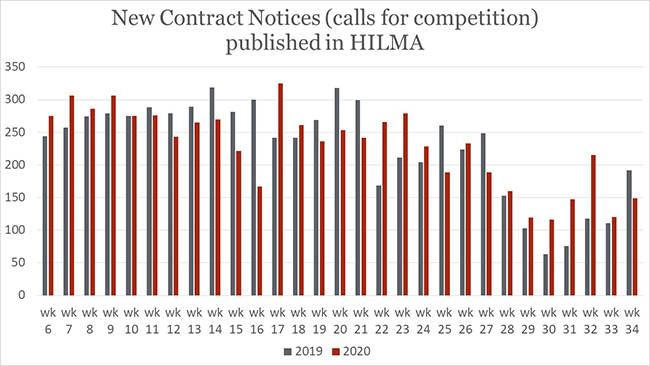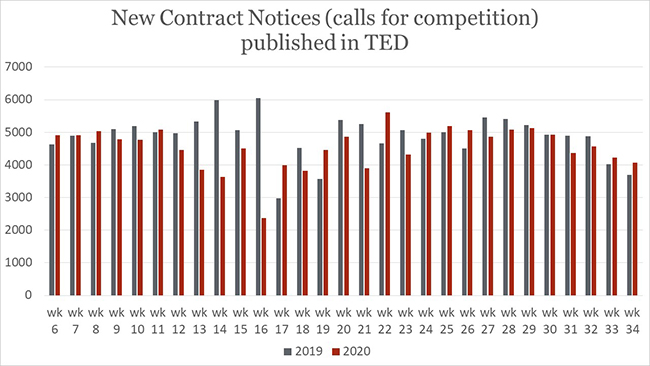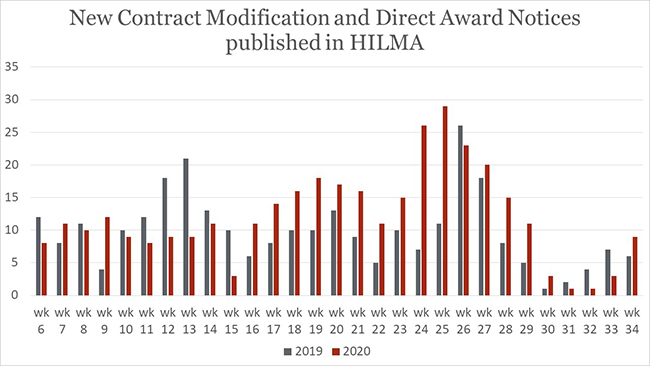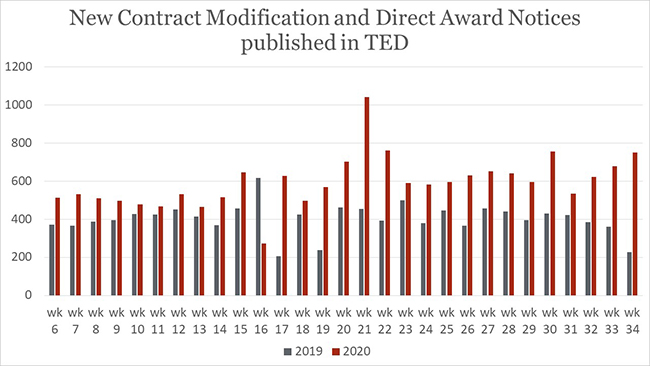What Will Autumn 2020 Look Like in Public Procurement?
27 August 2020
Authors: Outi Jousi (Counsel, Head of Public Procurement in Helsinki) and Eeva Tiainen (Associate)
In many respects, the year 2020 has been far from normal, and public procurement is not an exception. Public procurements of masks and respirators, for instance, have been in the headlines all over the world, and the grounds for a direct award in the case of extreme urgency have become more familiar for many contracting authorities. The situation in which markets have not been working as usual has also underlined the significance of public contracts for private sector companies. Even though we cannot know for sure what to expect from the coming autumn, we may make some assumptions about what it will look like with regard to public procurement.
In May, the Association of Finnish Local and Regional Authorities and the Federation of Finnish Enterprises issued a recommendation encouraging contracting authorities to carry on with their tendering competitions and even expedite them, if possible.
We have analysed the numbers of published contract notices and contract modification and direct award notices in the Finnish Hilma platform and in the EU’s TED platform from 2019 and 2020.




We can see from the statistics that at some points, there are larger variations between 2019 and 2020. There was a drop in contract notice numbers in the early stages of the COVID-19 pandemic. On the other hand, the number of contract modification and direct award notices increased during the spring and summer. It is probably safe to say that the COVID-19 pandemic has had an impact on the commencement of new tendering competitions at least in a short-term perspective. Nevertheless, contracting authorities will not stop needing services and supplies from the private sector.
As the market situation is uncertain, we predict that public contracts will become more important than ever for many private sector companies. This could be reflected in a growing number of bidders taking part in tendering competitions. The exceptional market situation may also lead to contracting authorities receiving bids with abnormally low prices more often. In such cases, if the value of the procurement exceeds the EU threshold, the contracting authority must, pursuant to the Act on Public Procurement and Concession Contracts (the “Act on Public Procurement”, 1397/2016, as amended), require an explanation from the bidder. The bid may be rejected if the explanation is not satisfactory, so it is important that companies answer to these queries with care and legal diligence.
Last April, the Finnish Competition Authority stated that because of the COVID-19 pandemic, companies may exceptionally enter into cooperative arrangements in order to secure the availability of protective equipment and medicine, for instance. In other areas, however, companies should be careful when considering whether to submit a bid together with another company. Contracting authorities will assess whether a company has submitted a bid in cooperation with a competitor even though the individual companies would have had the resources and capacity to submit the bid by themselves. If the companies have the capacity to bid on their own, submitting the bid together is, in principle, prohibited.
In Denmark, the Supreme Court ruled at the end of last year that a consortium agreement was concluded by two competitors to bid in a procurement procedure and that it had been concluded with the purpose of restricting competition. The agreement was thus not acceptable. In situations where it is considered acceptable to submit a bid together, the companies should still be careful when exchanging information. Any information that is not necessary to exchange in order to submit the bid in question should not be exchanged. It is also important to remember that there are restrictions to be considered even when submitting a bid alone; the bid must be prepared independently and cooperation between bidders is not allowed. This applies even to bidders that are part of the same group of companies.
Another situation that companies and contracting authorities may encounter more often in these times is the need to amend an existing agreement. The initiative for the modification may come from either of the contracting parties. When considering the possibility to modify an existing agreement, it is important to make sure that the modification complies with Section 136 of the Act on Public Procurement; otherwise, there is a risk that the entire agreement may be declared ineffective, as happened in Market Court Case MAO:469/18. It is also noteworthy that not only increasing the scope and volume but also narrowing the scope and volume of the agreement may be prohibited. Additionally, if the modification is due to grounds related to additional works, services, or supplies or unforeseen circumstances, the contracting authority is obliged to publish a modification notice. Pursuant to case law, if such a notice is not made public, other suppliers in the market may subject the modification to Market Court proceedings in the six months following the agreement being signed.
It will be interesting to see if the current exceptional situation has an impact on the number of Market Court appeals in the future. As public procurement-related Market Court proceedings are almost always written procedures, the current situation does not, in our understanding, have much impact on proceedings per se, but it remains to be seen if the number of new cases increases or decreases. Such appeals are very common in Finland, as there are approximately 300–400 cases per year.
The upcoming fall will also bring some positive and anticipated launches and reforms. First of all, the Finnish Public Procurement Strategy will be launched in September. The draft, which was published earlier, focused on the strategic leadership of procurements, capabilities and competences, knowledge-based management and influencing, functioning and lively market, high-quality procurements, innovations, and economic, social, and ecological sustainability. The idea is that contracting authorities may implement the strategic guidelines in their own operations.
Questions related to examining the backgrounds of suppliers and the difficulties to get necessary information about companies’ possible misconduct have been under discussion recently. Currently, an amendment to the Act on Public Procurement is underway, which would make it possible to submit digital extracts from the criminal records system. This will be one step forward in making public procurement more bidder-friendly and expediting unnecessary manual steps in public procurement. We firmly believe that both contracting authorities and suppliers benefit from professional, user-friendly documents and processes.
See our previous post for more tips for preparing a bid or feel free to contact us for details.







